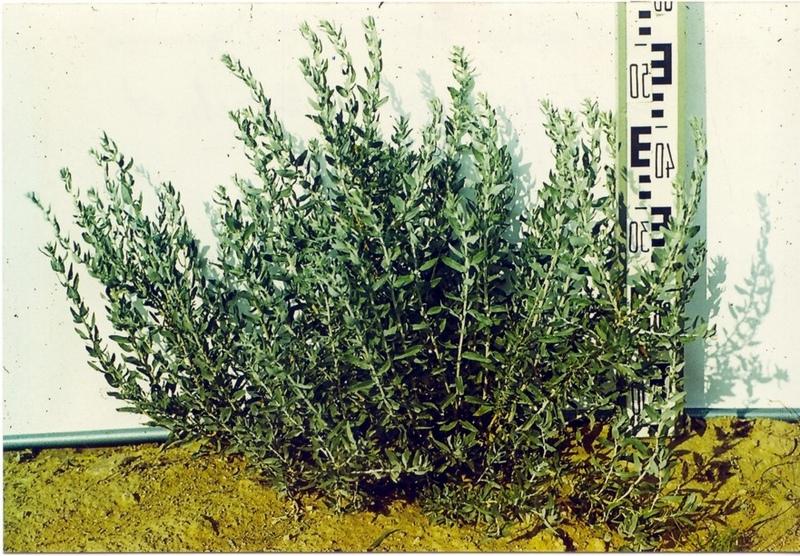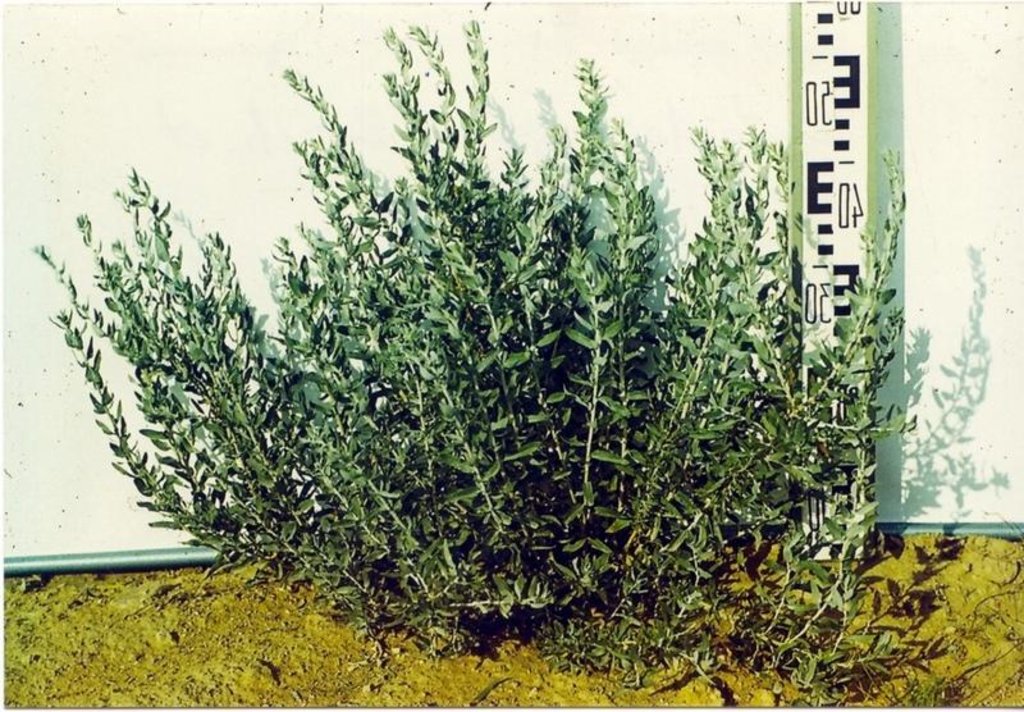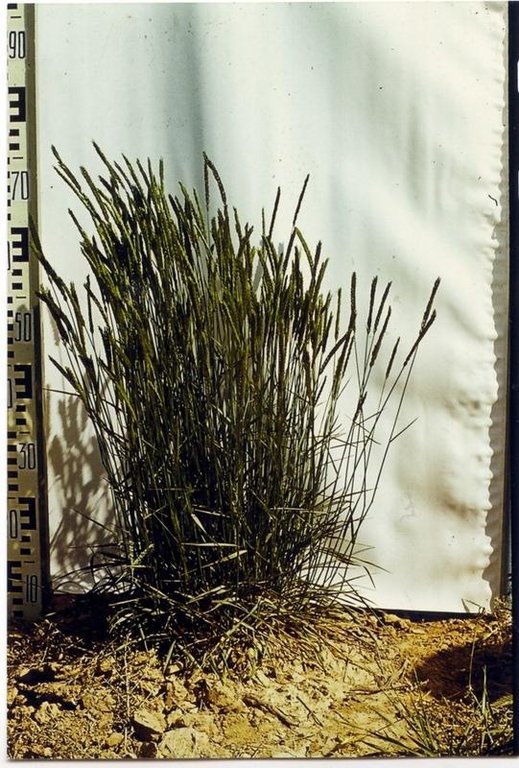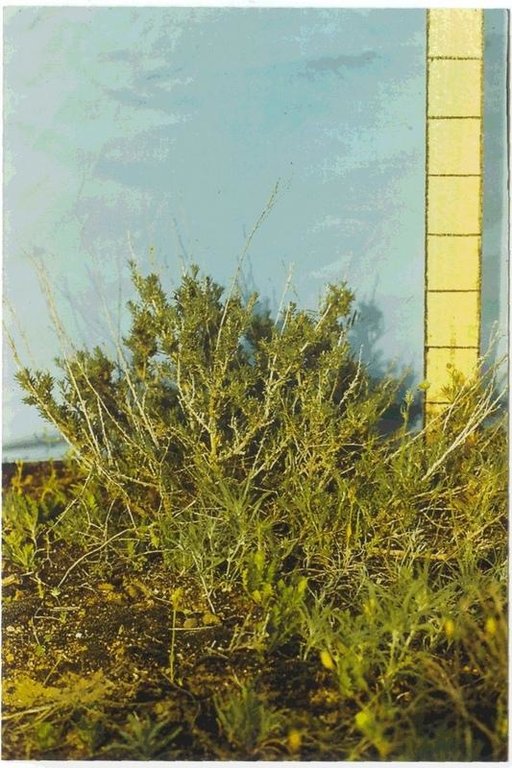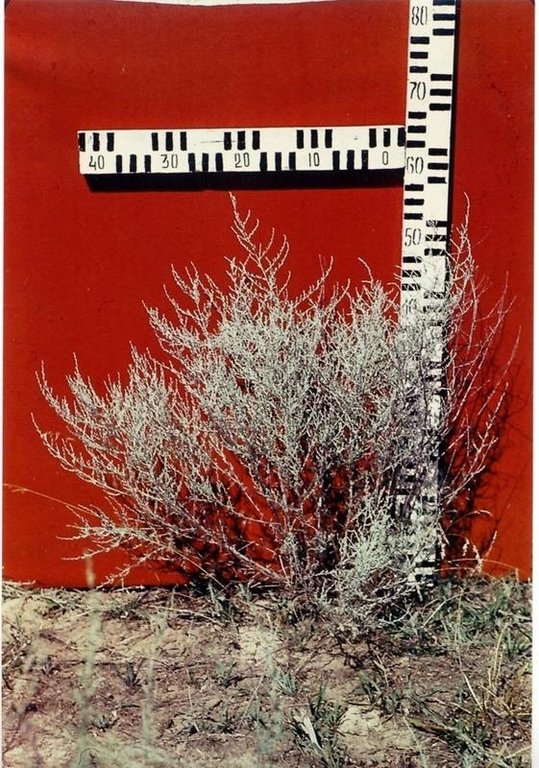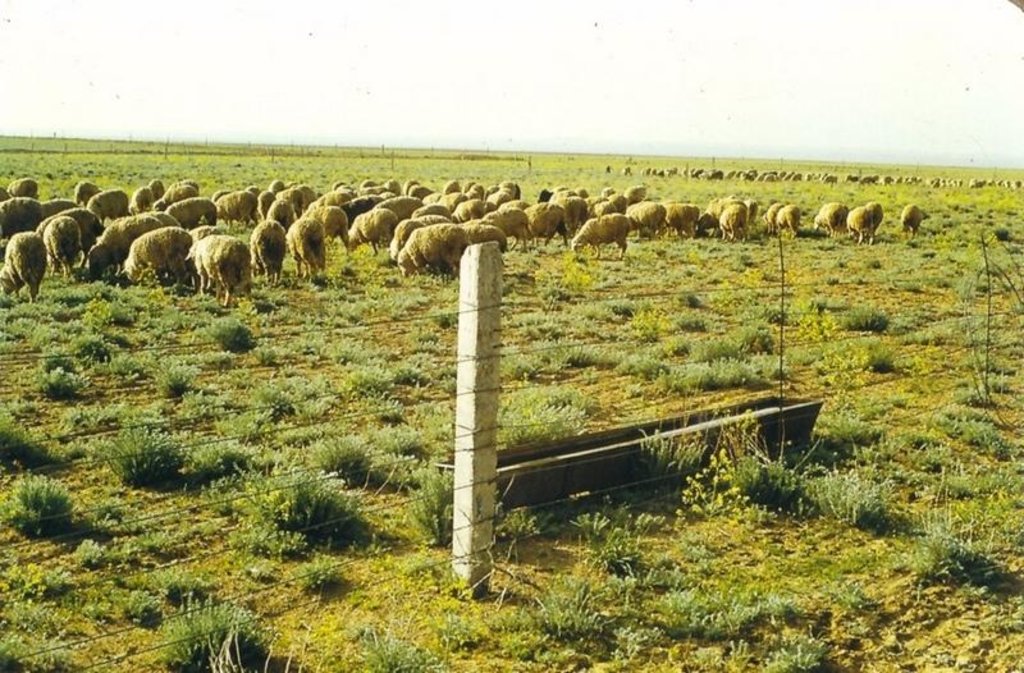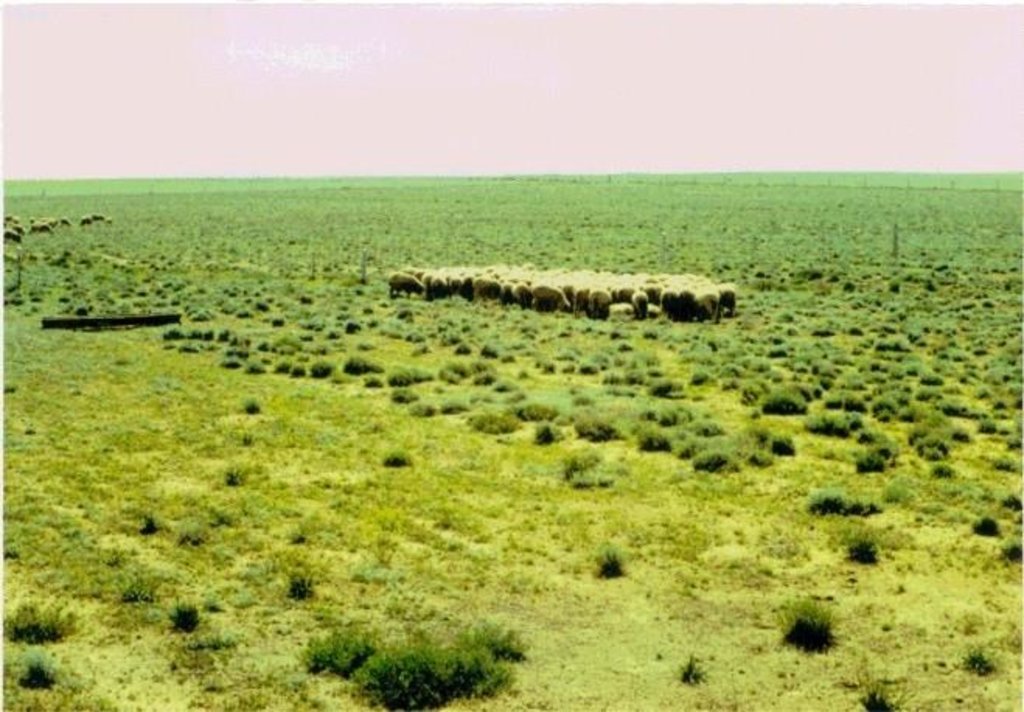Creation of artificial pasturable phytocenosis at north desert subzone [ប្រទេសកាហ្សាក់ស្ថាន]
- ការបង្កើត៖
- បច្ចុប្បន្នភាព
- អ្នកចងក្រង៖ Unknown User
- អ្នកកែសម្រួល៖ –
- អ្នកត្រួតពិនិត្យ David Streiff
Creation of artificial pasturable phytocenosis at north desert subzone
technologies_1093 - ប្រទេសកាហ្សាក់ស្ថាន
- សង្ខេបជា PDF
- សេចក្តីសង្ខេបពេញលេញជាទម្រង់ PDF សម្រាប់បោះពុម្ព
- សេចក្តីសង្ខេបពេញលេញទម្រង់អ៊ីនធឺនេត
- សេចក្តីសង្ខេបពេញលេញ (មិនមានទម្រង់ជាក់លាក់)
- Creation of artificial pasturable phytocenosis at north desert subzone: 26 ខែ ឧសភា ឆ្នាំ 2017 (inactive)
- Creation of artificial pasturable phytocenosis at north desert subzone: 4 ខែ កញ្ញា ឆ្នាំ 2019 (inactive)
- Creation of artificial pasturable phytocenosis at north desert subzone: 27 ខែ សីហា ឆ្នាំ 2025 (public)
ពិនិត្យមើលគ្រប់ផ្នែក
ពង្រីកមើលទាំងអស់ បង្រួមទាំងអស់1. ព័ត៌មានទូទៅ
1.2 ព័ត៌មានលម្អិតពីបុគ្គលសំខាន់ៗ និងស្ថាប័នដែលចូលរួមក្នុងការវាយតម្លៃ និងចងក្រងឯកសារនៃបច្ចេកទេស
បុគ្គលសំខាន់ម្នាក់ (ច្រើននាក់)
អ្នកជំនាញឯកទេស SLM:
Yurchenko Vladimir
8-(3272)-21-55-29
SPC for livestock husbandry and veterinary, Ministry of agriculture of the Republic of Kazakhstan
ប្រទេសកាហ្សាក់ស្ថាន
អ្នកជំនាញឯកទេស SLM:
Alimaev Ilya
8-(3272)-21-44-46
alimaev@nursat.kz
SPC for livestock husbandry and veterinary, Ministry of agriculture of the Republic of Kazakhstan
51, Jandosov Str., Almaty480035, RK
ប្រទេសកាហ្សាក់ស្ថាន
អ្នកជំនាញឯកទេស SLM:
Sisatov Jeksembai
8-(3272)-99-52-34
SPC for livestock husbandry and veterinary, Ministry of agriculture of the Republic of Kazakhstan
ប្រទេសកាហ្សាក់ស្ថាន
អ្នកជំនាញឯកទេស SLM:
Kildibekova Guliya
8-(3272)-39-39-07
SPC for livestock husbandry and veterinary, Ministry of agriculture of the Republic of Kazakhstan
ប្រទេសកាហ្សាក់ស្ថាន
ឈ្មោះអង្គភាពមួយ (ច្រើន) ដែលបានចងក្រងឯកសារ/ វាយតម្លៃបច្ចេកទេស (បើទាក់ទង)
Ministry of Agriculture of Kazakhstan (MoA) - ប្រទេសអេរីត្រេ1.3 លក្ខខណ្ឌទាក់ទងទៅនឹងការប្រើប្រាស់ទិន្នន័យដែលបានចងក្រងតាមរយៈ វ៉ូខេត
តើពេលណាដែលទិន្នន័យបានចងក្រង (នៅទីវាល)?
28/12/2003
អ្នកចងក្រង និង(បុគ្គលសំខាន់ៗ)យល់ព្រមទទួលយកនូវលក្ខខណ្ឌនានាទាក់ទងទៅនឹងការប្រើប្រាស់ទិន្នន័យដែលបានចងក្រងតាមរយៈវ៉ូខេត:
បាទ/ចា៎
2. ការពណ៌នាពីបច្ចេកទេស SLM
2.1 ការពណ៌នាដោយសង្ខេបពីបច្ចេកទេស
និយមន័យបច្ចេកទេស:
Selection fodder plants and the technology of their cultivation for maximal use of poor soil water in desert
2.2 ការពណ៌នាលម្អិតពីបច្ចេកទេស
ការពណ៌នា:
1. .Artificial fodder rangelands in desert are created in strong degraded sites by sowing of fodder subshrubs and perennial forbs.
2. The list of the fittest fodder plants, which can maximally effective use the poor desert soil resources, is established
3. The most capable plants belong to Chenopodiacia family: Kohia p., Salsola o., Ceratoides p., Artemisia t., to Areminea family – Agropyrum desertorum.
4. The preparation of soil for sowing is of sparing sort of under-winter ploughing (spike-tooth disk harrow). Sowing of subshrubs is carried out under winter in treated soil with sowing standard 2 million germinating seeds per 1 hectare. Agropyrum d. is sowed in early spring. Before sowing seeds are mixed in equal quantities at total sowing standard 2 million germinating seeds per 1 hectare.
5. The grazing is prohibited in the first year. It is possible to use the sowed site moderately since the latter half of the second year.
The cost of 1 hectare is 2700-3100 tenge with taking into account petrol, salary etc..
2.3 រូបភាពនៃបច្ចេកទេស
2.5 ប្រទេស/តំបន់/ទីតាំងកន្លែង ដែលបច្ចេកទេសត្រូវបានអនុវត្ត និងបានគ្រប់ដណ្តប់ដោយការវាយតម្លៃនេះ
ប្រទេស:
ប្រទេសកាហ្សាក់ស្ថាន
តំបន់/រដ្ឋ/ខេត្ត:
Jambyl, Almaty oblasts.
បញ្ជាក់បន្ថែមពីលក្ខណៈនៃទីតាំង:
South Pribalkhashye, Eastern part of sand Moynkum massif
2.6 កាលបរិច្ឆេទនៃការអនុវត្ត
ប្រសិនបើមិនច្បាស់ឆ្នាំ សូមបញ្ជាក់កាលបរិច្ឆេទដែលប្រហាក់ប្រហែល:
- តិចជាង 10ឆ្នាំមុន (ថ្មី)
2.7 ការណែនាំពីបច្ចេកទេស
សូមបញ្ជាក់តើបច្ចេកទេសត្រូវបានណែនាំឱ្យអនុវត្តដោយរបៀបណា:
- តាមរយៈការបង្កើតថ្មីរបស់អ្នកប្រើប្រាស់ដី
មតិយោបល់ (ប្រភេទនៃគម្រោង ។ល។):
SPCLHV( Scientific Production Centre for Livestock Husbandry and Veterinary)
3. ចំណាត់ថ្នាក់នៃបច្ចេកទេស SLM
3.1 គោលបំណងចម្បង (១ ឬច្រើន) នៃបច្ចេកទេសនេះ
- ធ្វើឱ្យប្រសើរឡើងនូវផលិតកម្ម
- បង្កើតផលប្រយោជន៍សេដ្ឋកិច្ច
3.2 ប្រភេទដីប្រើប្រាស់មួយប្រភេទ (ច្រើនប្រភេទ) ដែលបានអនុវត្តបច្ចេកទេស
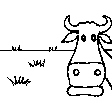
ដីសម្រាប់ចិញ្ចឹមសត្វ
ដីវាលស្មៅធំៗ:
- ពនេចរ
- ពាក់កណ្តាលពនេចរ
ដីវាលស្មៅតូចៗ/ ផលិតកម្មចំណី:
- បង្កើនវាលស្មៅ
ប្រភេទសត្វ និងផលិតផលចម្បងៗ:
Nomadism: Small percentage
Semi-nomadism / pastoralism: the majority of small stock breeders – up to 80%
Improved pasture: dry – desert pastures
មតិយោបល់:
Major land use problems (compiler’s opinion): The pasture production decline, containment of livestock husbandry development, low living standards of stock-breeders
Major land use problems (land users’ perception): Complication of animal maintenance, worsening of abode ecological conditions, forced migration
3.3 ព័ត៌មានបន្ថែមអំពីអ្នកប្រើប្រាស់ដី
ការផ្គត់ផ្គង់ទឹកនៅកន្លែងអនុវត្តបច្ចេកទេស:
- ទឹកភ្លៀង
ចំនួនសារដែលដាំដំណាំក្នុងមួយឆ្នាំ:
- 2
សូមបញ្ជាក់:
Longest growing period in days: 180; Longest growing period from month to month: Mar - Oct; Second longest growing period in days: 45; Second longest growing period from month to month: Sep - Oct
3.4 ក្រុម SLM ដែលបច្ចេកទេសស្ថិតនៅក្នុង
- ធ្វើឱ្យប្រសើរឡើងនូវការបង្កាត់ពូជរុក្ខជាតិ/ សត្វ
3.5 ការសាយភាយនៃបច្ចេកទេស
បញ្ជាក់ពីការសាយភាយនៃបច្ចេកទេស:
- ត្រូវបានផ្សព្វផ្សាយត្រឹមតំបន់មួយ
ប្រសិនបើបច្ចេកទេសត្រូវបានសាយភាយពាសពេញតំបន់ណាមួយ សូមកំណត់ទំហំផ្ទៃដីអនុវត្តន៍:
- 100-1,000 គម2
មតិយោបល់:
Total area covered by the SLM Technology is 8000 km2.
up to 1991 25-30 thousand hectares were created with such method in South-East of Kazakhstan.
3.6 វិធានការ SLM ដែលបញ្ចូលនូវបច្ចេកទេស
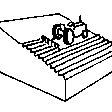
វិធានការក្សេត្រសាស្ត្រ
- A1: ដំណាំ/គម្របដី
- A3: ការរក្សាស្រទាប់ដីខាងលើ
- A5: ការគ្រប់គ្រងគ្រាប់ពូជ បង្កើនប្រភេទពូជ
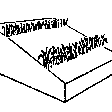
វិធានការរុក្ខជាតិ
មតិយោបល់:
Main measures: agronomic measures
Secondary measures: vegetative measures
Type of agronomic measures: early planting, relay cropping, mixed cropping / intercropping, minimum tillage
3.7 កំណត់ប្រភេទនៃការធ្លាក់ចុះគុណភាពដីសំខាន់ៗដែលបច្ចេកទេសនេះបានដោះស្រាយ

ការហូរច្រោះដីដោយសារទឹក
- Wt: ការបាត់ដីស្រទាប់លើដោយការហូរច្រោះ
3.8 ការពារ កាត់បន្ថយ ឬស្តារឡើងវិញនៃការធ្លាក់ចុះគុណភាពដី
បញ្ជាក់ពីគោលដៅរបស់បច្ចេកទេស ដែលផ្តោតទៅការធ្លាក់ចុះគុណភាពដី:
- ការជួសជុល/ ស្តារឡើងវិញនៃឱនភាពដីធ្ងន់ធ្ងរ
4. បច្ចេកទេសជាក់លាក់ សកម្មភាពអនុវត្ត ធាតុចូល និងថ្លៃដើម
4.2 លក្ខណៈពិសេសនៃបច្ចេកទេស/ ពណ៌នាពីគំនូរបច្ចេកទេស
Technical knowledge required for field staff / advisors: high
Technical knowledge required for land users: moderate
Main technical functions: improvement of ground cover
Early planting
Material/ species: Agropurum
Relay cropping
Material/ species: subshrubs
Mixed cropping / intercropping
Material/ species: subshrubs
Minimum tillage
Remarks: 8-10cm
Vegetative measure: strip width 25-50 m with the some spacing
Vegetative material: O : other
Number of plants per (ha): 30-30
Spacing between rows / strips / blocks (m): 25-50
Vegetative measure: Vegetative material: O : other
Other species: Combination of Kochia+Solsola+Artemisia+Ceratoides
Diversion ditch/ drainage
Spacing between structures (m): 1
Depth of ditches/pits/dams (m): 0,3
Width of ditches/pits/dams (m): 0,5
Length of ditches/pits/dams (m): 500,0
Construction material (earth): The ground wich dug from channels used for strengthening of board
Construction material (other): The polyethylene film cover a bottom of the channal
4.3 ព័ត៌មានទូទៅដែលពាក់ព័ន្ធនឹងការគណនាធាតុចូល និងថ្លៃដើម
កំណត់រូបិយប័ណ្ណសម្រាប់ថ្លៃដើម:
- ដុល្លារអាមេរិក
កំណត់ថ្លៃឈ្នួលជាមធ្យមនៃការជួលកម្លាំងពលកម្មក្នុងមួយថ្ងៃ:
7.00
4.4 សកម្មភាពបង្កើត
| សកម្មភាព | ប្រភេទវិធានការ | ពេលវេលា | |
|---|---|---|---|
| 1. | sowing | សារពើរុក្ខជាតិ | november |
| 2. | Inspection of territories | រចនាសម្ព័ន្ធ | In the spring cropping sea sun |
| 3. | Excavation of channals | រចនាសម្ព័ន្ធ | Before cropping |
| 4. | Creation a drain | រចនាសម្ព័ន្ធ | After planting |
4.5 ថ្លៃដើម និងធាតុចូលដែលត្រូវការសម្រាប់ការបង្កើតបច្ចេកទេស
| បញ្ជាក់ពីធាតុចូល | ឯកតា | បរិមាណ | ថ្លៃដើមក្នុងមួយឯកតា | ថ្លៃធាតុចូលសរុប | % នៃថ្លៃដើមដែលចំណាយដោយអ្នកប្រើប្រាស់ដី | |
|---|---|---|---|---|---|---|
| កម្លាំងពលកម្ម | All the Labour | ha | 1,0 | 9,0 | 9,0 | 100,0 |
| សម្ភារៈ | Machine use | ha | 1,0 | 13,0 | 13,0 | 100,0 |
| សម្ភារៈដាំដុះ | Seeds | ha | 1,0 | 16,0 | 16,0 | 100,0 |
| ថ្លៃដើមសរុបក្នុងការបង្កើតបច្ចេកទេស | 38,0 | |||||
មតិយោបល់:
Duration of establishment phase: 12 month(s)
4.6 សកម្មភាពថែទាំ
| សកម្មភាព | ប្រភេទវិធានការ | ពេលវេលា/ ភាពញឹកញាប់ | |
|---|---|---|---|
| 1. | Soil surface treatment | ក្សេត្រសាស្ត្រ | autumn / 1 time. |
| 2. | Harrowing | ក្សេត្រសាស្ត្រ | autumn / 1 time. |
| 3. | Sowing of subshrubs | ក្សេត្រសាស្ត្រ | November, December. / 1 time. |
| 4. | Sowing of Agropyrum with postsowing packin | ក្សេត្រសាស្ត្រ | March / 1 time. |
| 5. | harrowing | សារពើរុក្ខជាតិ | early /1 time |
| 6. | Inspection of the channels state of drainage film | រចនាសម្ព័ន្ធ | before watering/4-5 times |
| 7. | Replacement of a drainage film | រចនាសម្ព័ន្ធ | before watering/as reguired 4-5 times |
4.7 កំណត់ថ្លៃដើមសម្រាប់ការថែទាំ/ សកម្មភាពរបស់បច្ចេកទេស (ក្នុងរយៈពេលមួយឆ្នាំ)
| បញ្ជាក់ពីធាតុចូល | ឯកតា | បរិមាណ | ថ្លៃដើមក្នុងមួយឯកតា | ថ្លៃធាតុចូលសរុប | % នៃថ្លៃដើមដែលចំណាយដោយអ្នកប្រើប្រាស់ដី | |
|---|---|---|---|---|---|---|
| កម្លាំងពលកម្ម | All the labour | ha | 1,0 | 3,0 | 3,0 | 100,0 |
| សម្ភារៈ | Machine use | ha | 1,0 | 4,0 | 4,0 | 100,0 |
| ថ្លៃដើមសរុបសម្រាប់ការថែទាំដំណាំតាមបច្ចេកទេស | 7,0 | |||||
មតិយោបល់:
Machinery/ tools: .tractor ÌÒÇ, flat hoe, seeder, roller
For conditions of degraded wormwood-ephemeron pastures in light clay sand carbonate serozems in north kazakhstan desert subzone
4.8 កត្តាសំខាន់បំផុតដែលមានឥទ្ធិពលដល់ការចំណាយ
ពណ៌នាពីកត្តាប៉ះពាល់ចម្បងៗទៅលើថ្លៃដើម:
value of petrol
5. លក្ខណៈបរិស្ថានធម្មជាតិ និងមនុស្ស
5.1 អាកាសធាតុ
បរិមាណទឹកភ្លៀងប្រចាំឆ្នាំ
- < 250 មម
- 251-500 មម
- 501-750 មម
- 751-1,000 មម
- 1,001-1,500 មម
- 1,501-2,000 មម
- 2,001-3,000 មម
- 3,001-4,000 មម
- > 4,000 មម
កំណត់បរិមាណទឹកភ្លៀង (បើដឹង) ជា មីលីម៉ែត្រ:
227,00
តំបន់កសិអាកាសធាតុ
- ស្ងួត
North Kazkhstan desert
5.2 សណ្ឋានដី
ជម្រាលជាមធ្យម:
- រាបស្មើ (0-2%)
- ជម្រាលតិចតួច (3-5%)
- មធ្យម (6-10%)
- ជម្រាលខ្ពស់បន្តិច (11-15%)
- ទីទួល (16-30%)
- ទីទួលចោត (31-60%)
- ទីទួលចោតខ្លាំង (>60%)
ទម្រង់ដី:
- ខ្ពង់រាប
- កំពូលភ្នំ
- ជម្រាលភ្នំ
- ជម្រាលទួល
- ជម្រាលជើងភ្នំ
- បាតជ្រលងភ្នំ
តំបន់តាមរយៈកម្ពស់ :
- 0-100 ម
- 101-500 ម
- 501-1,000 ម
- 1,001-1,500 ម
- 1,501-2,000 ម
- 2,001-2,500 ម
- 2,501-3,000 ម
- 3,001-4,000 ម
- > 4,000 ម
មតិយោបល់ និងបញ្ចាក់បន្ថែមអំពីសណ្ឋានដី :
Altitudinal zone: 490-510 m a.s.l.
5.3 ដី
ជម្រៅដីជាមធ្យម:
- រាក់ខ្លាំង (0-20 សម)
- រាក់ (21-50 សម)
- មធ្យម (51-80 សម)
- ជ្រៅ (81-120 សម)
- ជ្រៅខ្លាំង (> 120 សម)
វាយនភាពដី (ស្រទាប់លើ):
- គ្រើម/ មានពន្លឺ (ខ្សាច់)
សារធាតុសរីរាង្គនៅស្រទាប់ដីខាងលើ:
- ទាប (<1%)
បើអាចសូមភ្ជាប់ការពណ៌នាពីដីឱ្យបានច្បាស់ ឬព័ត៌មានដែលអាចទទួលបាន ឧ. ប្រភេទដី, pH ដី/ ជាតិអាស៊ីត, សមត្ថភាពផ្លាស់ប្តូរកាចុង, វត្តមាននីត្រូសែន, ភាពប្រៃ ។ល។:
Soil depth on average: Dust content is up to 80% in autumn
Soil texture (topsoil): Clay sand light serozems
Soil fertility is very low with a humus content of 0.8-1.2%
Topsoil organic matter: 0.8-1.2%
Soil drainage / infiltration is medium due to crushed stone base
Soil water storage capacity is in spring 17-21 and in autumn the producing moisture is lacking
5.6 លក្ខណៈនៃអ្នកប្រើប្រាស់ដីដែលអនុវត្តបច្ចេកទេស
ទីផ្សារនៃប្រព័ន្ធផលិតកម្ម:
- ពាណិជ្ជកម្ម/ ទីផ្សារ
កម្រិតជីវភាព:
- មាន
- មានខ្លាំង
សូមបញ្ជាក់ពីលក្ខណៈពាក់ព័ន្ធផ្សេងទៀតអំពីអ្នកប្រើប្រាស់ដី:
Population density: 10-50 persons/km2
Annual population growth: 0.5% - 1%
10% of the land users are very rich and own 10% of the land.
10% of the land users are rich and own 40% of the land.
10% of the land users are average wealthy and own 30% of the land.
60% of the land users are poor and own 10% of the land.
Market orientation of production system: The possibility of primary accumulation of circulating
5.7 ទំហំផ្ទៃដីជាមធ្យមនៃដីផ្ទាល់ខ្លួន ឬជួលគេដែលបានអនុវត្តបច្ចេកទេស
- < 0.5 ហិកតា
- 0.5-1 ហិកតា
- 1-2 ហិកតា
- 2-5 ហិកតា
- 5-15 ហិកតា
- 15-50 ហិកតា
- 50-100 ហិកតា
- 100-500 ហិកតា
- 500-1,000 ហិកតា
- 1,000-10,000 ហិកតា
- > 10,000 ហិកតា
មតិយោបល់:
It is complicated to evaluate the size of grazing land per household because the free grazing is practiced at lands appurtenant to rural akimats
5.8 ភាពជាម្ចាស់ដី កម្មសិទ្ធប្រើប្រាស់ដី និងកម្មសិទ្ធប្រើប្រាស់ទឹក
ភាពជាម្ចាស់ដី:
- ភូមិ
កម្មសិទ្ធិប្រើប្រាស់ដី:
- អាស្រ័យផលសេរី (មិនមានការកំណត់)
6. ផលប៉ះពាល់ និងការសន្និដ្ឋាន
6.1 ផលប៉ះពាល់ក្នុងបរិវេណអនុវត្តបច្ចេកទេសដែលកើតមាន
ផលប៉ះពាល់លើសេដ្ឋកិច្ចសង្គម
ផលិតផល
ផលិតកម្មដំណាំ
ផលិតកម្មចំណីសត្វ
គុណភាពចំណីសត្វ
មតិយោបល់/ ការបញ្ជាក់:
Increase of protein content from 4-5% to 11-14%
ផលប៉ះពាល់ទៅលើសេដ្ឋកិច្ចសង្គមផ្សេងៗ
Stabilization of traditional porture livestock husbandry
មតិយោបល់/ ការបញ្ជាក់:
Increase of head and production quality improvement....
ផលប៉ះពាល់ទៅលើវប្បធម៌សង្គម
ស្ថាប័នសហគមន៍
ផលប៉ះពាល់ទៅលើអេកូឡូស៊ី
ដី
គម្របដី
មតិយោបល់/ ការបញ្ជាក់:
Stabilization
ការបាត់បង់ដី
គុណភាពមុន SLM:
5
គុណភាពក្រោយ SLM:
0
ផលប៉ះពាល់ទៅលើអេកូឡូស៊ីផ្សេងៗ
biodiversity
មតិយោបល់/ ការបញ្ជាក់:
Enrichment of local wild flora
6.4 ការវិភាគថ្លៃដើម និងអត្ថប្រយោជន៍
តើផលចំណេញ និងថ្លៃដើមត្រូវបានប្រៀបធៀបគ្នាយ៉ាងដូចម្តេច (ទស្សនៈរបស់អ្នកប្រើប្រាស់ដី)?
រយៈពេលវែង:
វិជ្ជមានតិចតួច
តើផលចំណេញ និងការថែទាំ/ ជួសជុលត្រូវបានប្រៀបធៀបគ្នាយ៉ាងដូចម្តេច (ទស្សនៈរបស់អ្នកប្រើប្រាស់ដី)?
រយៈពេលខ្លី:
វិជ្ជមាន
6.5 ការទទួលយកបច្ចេកទេស
- 10-50%
បើអាច សូមបញ្ជាក់ពីបរិមាណ (ចំនួនគ្រួសារ និង/ ឬតំបន់គ្របដណ្តប់):
12 households coverin 20 percent of stated area
ក្នុងចំណោមគ្រួសារទាំងអស់ដែលអនុវត្តបច្ចេកទេស តើមានប៉ុន្មានគ្រួសារដែលចង់ធ្វើដោយខ្លួនឯង ដោយមិនទទួលបានសម្ភារៈលើកទឹកចិត្ត/ប្រាក់ឧបត្ថម្ភ?:
- 90-100%
មតិយោបល់:
Comments on acceptance with external material support: survey results
12 land user families have adopted the Technology without any external material support
Comments on spontaneous adoption: survey results
There is a little trend towards spontaneous adoption of the Technology
Comments on adoption trend: stock breeders advantaged and of moderate means can allow the introduction of SWC-technology in small area for now
6.7 ភាពខ្លាំង/ គុណសម្បត្តិ/ ឱកាសនៃបច្ចេកទេស
| ភាពខ្លាំង/ គុណសម្បត្តិ/ ឱកាសនៅកន្លែងរបស់អ្នកប្រើប្រាស់ដី |
|---|
|
providing of animals with fodder. How can they be sustained / enhanced? constantly |
|
improvement of ecological conditions in places of abode How can they be sustained / enhanced? constantly |
|
refusal from forced migration How can they be sustained / enhanced? constantly |
| ភាពខ្លាំង/ គុណសម្បត្តិ/ ឱកាស ទស្សនៈរបស់បុគ្គលសំខាន់ៗ |
|---|
|
increased productivity of rangeland How can they be sustained / enhanced? .for 20 and more years |
|
localization of degradation centers How can they be sustained / enhanced? constantly |
|
assured feeding of animals with full fodder How can they be sustained / enhanced? 20 and more years |
|
Maintenance of biodiversity How can they be sustained / enhanced? constantly |
|
improvement of living standards of rural community people. How can they be sustained / enhanced? constantly |
6.8 ភាពខ្សោយ/ គុណវិបត្តិ/ ហានិភ័យនៃបច្ចេកទេស និងវិធីសាស្ត្រដោះស្រាយ
| ភាពខ្សោយ/ គុណវិបត្តិ/ ហានិភ័យ ទស្សនៈរបស់អ្នកប្រើប្រាស់ដី | តើបច្ចេកទេសទាំងនោះបានដោះស្រាយបញ្ហាដូចម្តេច? |
|---|---|
| high one time expenses | state grants and awards, credits are needed |
| ភាពខ្សោយ/ គុណវិបត្តិ/ ហានិភ័យ ទស្សនៈរបស់អ្នកចងក្រងឬបុគ្គលសំខាន់ៗ | តើបច្ចេកទេសទាំងនោះបានដោះស្រាយបញ្ហាដូចម្តេច? |
|---|---|
| Insufficient development of fodder plant seed-farming | arrangement schemes of primary and marketable seed-farming at research organizations and special farmings of oblasts; decreasing of petrol costs |
7. ឯកសារយោង និងវេបសាយ
7.2 ឯកសារយោងដែលបានចេញផ្សាយ
ចំណងជើង អ្នកនិពន្ធ ឆ្នាំ ISBN:
1.Agribiological aspects of creation and use of pasturable phytocenoses in north desert subzone. Abstract of doctoral thesis, Alimaev I., Almaty,. 2001.
មានប្រភពមកពីណា? ថ្លៃដើមប៉ុន្មាន?
Almaty, free. Tel 8-(3272) 21-44-76
ចំណងជើង អ្នកនិពន្ធ ឆ្នាំ ISBN:
2.Fodder production of south-east and east regions. /Pastures and haylands of Kazakhstan, Alimaev I., Isakov K., and others, Almaty. 1998.
មានប្រភពមកពីណា? ថ្លៃដើមប៉ុន្មាន?
Almaty, free. Tel 8-(3272) 21-44-76
ការតភ្ជាប់ និងម៉ូឌុល
ពង្រីកមើលទាំងអស់ បង្រួមទាំងអស់ការតភ្ជាប់
គ្មានការតភ្ជាប់
ម៉ូឌុល
គ្មានម៉ូឌុល


